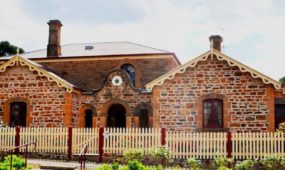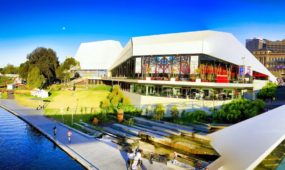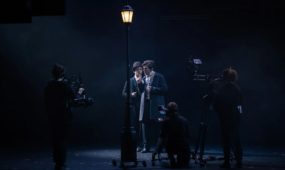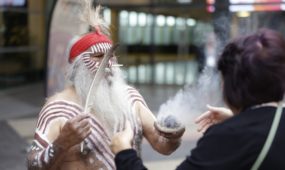Truth matters to Adelaide Writers’ Week’s new director
Arts
She’s been a committed festival-goer ever since a pivotal experience as a schoolgirl. Now, in her first outing as director of Adelaide Writers’ Week, former publisher Louise Adler asks what truth means to writers in the 21st century.

Sign up to receive notifications about new stories in this category.
Thank you for subscribing to story notifications.
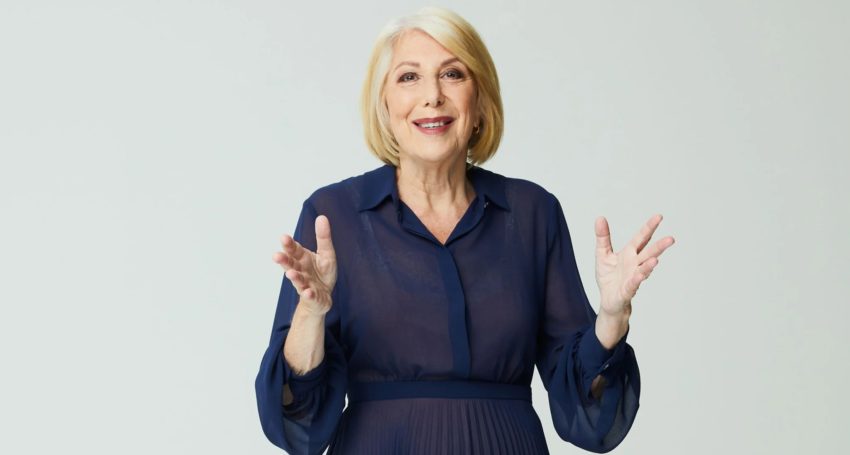
Louise Adler’s love for Adelaide Writers’ Week dates back to the 1970s when, as a schoolgirl, she heard beat poet Allen Ginsberg recite Howl, his anguished cry from the soul that begins: “I saw the best minds of my generation destroyed by madness, starving, hysterical, naked.”
She wasn’t tuned into its subversive homosexual narrative but, standing next to her mother, she felt in the presence of art that was internationally significant.

Allen Ginsberg during his visit to Adelaide in 1972. Photo: Peter Tea / flickr
“You had a sense that you were going to see, watch and hear the best of arts and culture,” says Adler, on the eve of her first Adelaide Writers’ Week as director.
“It was so exciting and I have been a committed festival-goer, and I mean Writers’ Week and the Adelaide Festival, ever since.”
Adler comes from a strong background in literary publishing, which has given weight to this year’s program – full details of which will be released on February 8.
As head of Melbourne University Press, she moved its list towards more commercial political titles, with books from Gough Whitlam and Tony Abbott. It ended in tears in 2019, when Adler and four board members resigned while under pressure to return to a more scholarly direction. Since then, she has been publisher-at-large at Hachette, and with Monash University, where she is a vice-chancellor’s professorial fellow, she published a short-book series under the title, In the National Interest.
Adler found the chance to curate Adelaide Writers’ Week irresistible.
“I am really serious,” she says.
“I’ve known as a cultural consumer and as a publisher how important Writers’ Week was to our literary culture. If you look at the history of Writers’ Week, everybody who is anybody in the literary world internationally has been to Adelaide, so the best of international and the best Australian writers come together in dialogue. You have access to the best.”
For her inaugural program, she has selected writers with the intention of exploring the meaning of truth in a cultural and political climate in which Trumpian bombast has rendered the word at best slippery, at worst meaningless.
One of the biggest drawcards will be playwright and screenwriter David Hare, who will perform his COVID monologue Beat the Devil, fuelled by his anger at the political response to the virus while also railing at the physical debilitation he suffered after contracting it at the start of lockdown.
“With all of David’s plays, he is talking about truth and what truth means for the political culture, for the judiciary, for the church,” Adler says.
“What does truth mean in that setting and how malleable is the truth? We have politicians today not saying ‘I lied’ but ‘I misspoke’! What a euphemism that is; it’s so interesting to me.”
Another eminent screenwriter, Terence Davies, whose 2021 film Benediction was about the life of war poet Siegfried Sassoon, will explore literary truth in conversation with former Adelaide Festival co-artistic director Neil Armfield. Adler wants to know more about Davies’ filmic response to prominent literary figures such as Emily Dickinson, the subject of his 2016 film A Quiet Passion.
“I thought his early film, Distant Voice, Still Lives, was one of the best – I mean, I weep with despair when I watch it,” Adler says.
“I’ve included him for the same reason as I’ve included David Hare, and [playwright] Tom Stoppard – it’s because they’re writers that they’re in Writers’ Week, not because of their work on film or in theatre. That’s a different discussion.”
Adler has also managed to coax onto the stage Nobel literature laureate JM Coetzee, who occasionally chairs sessions at Writers’ Week and in 2004 was the subject of a Meet the Author event in which he gave little away about himself or his motivation for writing the novel he read from, Elizabeth Costello, about an ageing, disgruntled writer.
Adler says she wanted to include Coetzee at any cost.
“I thought it was important to have him; here he is, a Nobel literature prize winner and he’s sitting in Adelaide and he’s not part of the Festival. I thought that was terrible.”
She knew Coetzee, whose new book, El Polaco (The Pole), is so far published only in Spanish, was interested in psychoanalysis. In The Good Story (2015), he wrote about a novelist who talks with a psychoanalyst about the fictions they create and whose needs should be considered.
“So, he is going to be in dialogue with a very interesting British psychoanalyst Paul Williams, who has written [in The Authority of Tenderness] in a very autobiographical way about his traumatised, troubled boyhood,” Adler says.

JM Coetzee with South African writer Marlene van Niekerk at Adelaide Writers’ Week in 2019. Photo: Andrew Beveridge
Political truths will be examined by a selection of Palestinian women who include novelist Adania Shibli; Australian-based Palestinian Egyptian writer Randa Abdel-Fattah, whose 14 books sell in 20 countries; Susan Abulhawa, the novelist and executive director of the Palestine Writes Literature Festival; and US-based Hala Alyan, whose novel Salt Houses won an Arab American Book Award.
From Australia, climate scientist Joelle Gergis will look at the climate wars, while former Labor-speechwriter-turned-author Brigid Delaney will talk about the pervasive drive for self-improvement that inspired her book Wellmania, about to go to air as a series on Netflix starring comedian Celeste Barber.
Eminent Irish writer John Banville is on the program with his new book, The Singularities, and writer Alison MacLeod will discuss Tenderness, her brilliant reconstruction and reimagining of the life of DH Lawrence which culminates in the UK obscenity trial over his sexually explicit 1920s novel, Lady Chatterley’s Lover.
Adler says she is thrilled to be putting COVID behind as Writers’ Week returns to an almost fully in-person event, with occasional exceptions because of age or availability.
“Nobody has used COVID as an excuse for beaming in – some of them are writers and academics, so that makes it [being here] difficult,” she says. “Nobody has said, ‘I am fearful of flying because of COVID’. Cross our fingers there isn’t another pandemic. Wave the garlic cloves.”

Audience members at last year’s Adelaide Writers’ Week. Photo: Tony Lewis
Adelaide Writers’ Week runs from March 4-9 at the Pioneer Women’s Memorial Garden as part of the 2023 Adelaide Festival. The full program will be released on February 8.
Jump to next article

